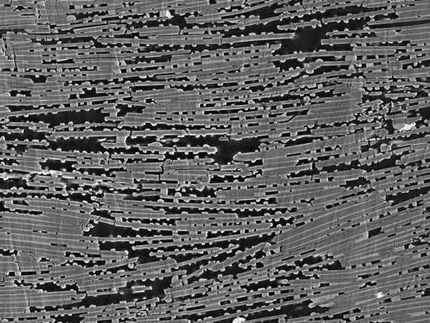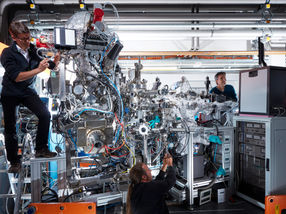Researchers develop novel, inexpensive catalysts enabling noble metal chemistry
"With our new approach, we can mimic the interaction of gold and alkyne species at the electron level"
Advertisement
alkynes have many uses in industry. Until now, it was assumed that gold- or platinum-based catalysts were absolutely necessary for certain chemical reactions with alkynes. Chemists at Martin Luther University Halle-Wittenberg (MLU) have now succeeded in carrying out the same reactions with considerably less expensive materials. The team reports on its work in the "Journal of the American Chemical Society".
Alkynes are hydrocarbons that contain carbon-carbon triple bonds. They are among the basic building blocks of organic chemistry. "For the desired industrial reactions, the triple bond must be activated in a special, so-called soft, manner. So far, this has been observed primarily in reactions with catalysts based on precious metals, especially gold or platinum. There is a long-standing consensus in the scientific community on why these elements dominate in the intricate types of alkynes’ activation", explains Professor Konstantin Amsharov from the Institute for Chemistry at MLU. However, gold and platinum are not only expensive but also relatively rare.
In the new study, the chemists show that under certain conditions, a catalyst based on aluminium oxide induces activation of alkynes similarly to gold- and platinum-based catalysts. "This material is inexpensive and accessible", says Amsharov. The team also provides an explanation for this. "With our new approach, we can mimic the interaction of gold and alkyne species at the electron level. In some cases, the reactions were even more efficient", says Amsharov.
So far, the researchers have proven the new method only on a laboratory scale. "With our study, we have provided fundamental proof that metal oxides can be used as comparable catalysts", says Dr Vladimir Akhmetov from MLU, co-author of the paper. Further studies will now investigate which common reactions the discovery could be applied to.
Original publication
Other news from the department science

Get the chemical industry in your inbox
By submitting this form you agree that LUMITOS AG will send you the newsletter(s) selected above by email. Your data will not be passed on to third parties. Your data will be stored and processed in accordance with our data protection regulations. LUMITOS may contact you by email for the purpose of advertising or market and opinion surveys. You can revoke your consent at any time without giving reasons to LUMITOS AG, Ernst-Augustin-Str. 2, 12489 Berlin, Germany or by e-mail at revoke@lumitos.com with effect for the future. In addition, each email contains a link to unsubscribe from the corresponding newsletter.






























































